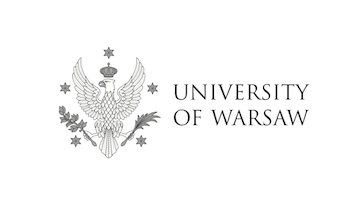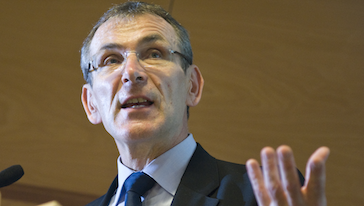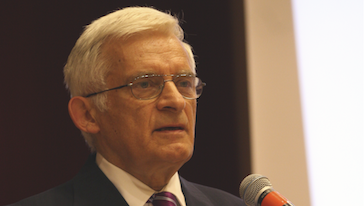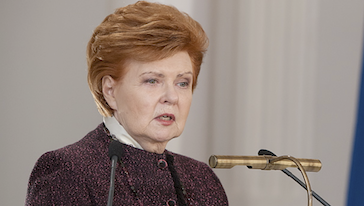Commissioner Piebalgs’ lecture, entitled “Solidarity – Made in Poland, Exported by Europe” was focused on the development aid in the context of human solidarity and Kapuscinski’s heritage. Before Mr. Piebalgs moved to the point he presented his reflection on 04/10 tragedy of Smolensk and conveyed condolences.
Commissioner Piebalgs started with the recognition of Polish successful transformation and noticed that solidarity, the one that was born in Poland as a movement of brave people, had a wider meaning and was a core of human willingness to help others in need. Speaking at Kapuscinki’s former university Mr. Piebalgs called over this brilliant journalist, writer and storyteller to demonstrate that it was critical to understand the world and its people. And encouraged to look at things in ways in which we had had not previously contemplated.
Then he evoked refugee camps and the rubble that was once homes, schools and hospitals – consequences of the devastating earthquake which struck Haiti on 12 January. The destruction and the tragedy he saw was immense. Nonetheless it let him realise the decency of mankind and the determination of countries to work together to overcome this humanitarian crisis. Since solidarity is a fundamental part of EU development policy Member States and the Commission – working with the Government of Haiti – united their efforts to make sure that aid was targeted in the most effective way, focusing on results and cutting out waste and duplication. However it was not just about spending money and providing people with food. Development policy, he noticed, must be a catalyst for change and help people in need build a better future. It is about learning from experiences, sharing ideas and understanding opportunities. Thus Poland – country so experienced with transition, democratic and economic reforms – has so much to contribute to Europe’s development policy thinking. Moreover, it could inspire further EU actions towards developing countries. Commissioner Piebalgs emphasized that there was no one-size-fits-all approach and that we have to respect and trust our partners. He also reminded of Nicolas Copernicus, the Polish astronomer who put forward the idea that the earth was not the centre of the universe to illustrate that the development policy, if we expect it to be sustainable, cannot be donor-oriented but must put the recipient in the first place. Considering that our world is interconnected – events and actions such as pandemics in Mexico and pollution from Indian industries affect other parts of the world and the globe as a whole – this policy has to be about long-term response to present-day threats and global challenges at the same time. Many of these, Mr. Piebalgs noticed, had their roots in poverty and under-development. He also observed that development and security were interdependent – there was no development without security and no security without development for every human being. And, even though some may think that eradicating poverty is impossible, we have to endeavour to succeed.
This brought the speaker to the Millennium Development Goals. Commissioner Piebalgs presented some achievements such as significant reduction of tuberculosis incidences, increase of safe drinking water availability, increase of educational institutions and number of students. Nevertheless there is still a large number of victims of HIV/AIDS and other diseases and ca. 1.4 billion people live in extreme poverty. Thus a lot has to be done and international community has to redouble its efforts. One of them is EU’s 12-point Action Plan aimed to help developing countries achieve the Millennium Development Goals. It calls EU countries to increase aid, regardless of today’s economic and financial environment. EU credibility in development policy area is fundamental for trustworthy and successful partnership with developing countries. EU actions in this area need to ensure better value and more effectiveness. In this sense solidarity is the basis of the Action Plan that also affects other EU policies such as trade and migration also work for development. European Union, that accounts for over half of development assistance in the world, calls the rest of international community to undertake actions and get involved in tackling poverty. EU, with its potential and experience, may lead the rest of the world and export to the world the solidarity that was made in Poland. Hopefully forthcoming United Nations Summit in New York will help to achieve this goal.
Last but not least Commissioner Piebalgs emphasized the key role of Poland in the EU in the second half of 2011. Poland will also organize European Development Days in 2011. Mr. Piebalgs wished Poland, inspired with Kapuscinski heritage, would use this opportunity to raise the profile of development. In his opinion it was not too late for making the difference and implementing the Millennium Development Goals.



